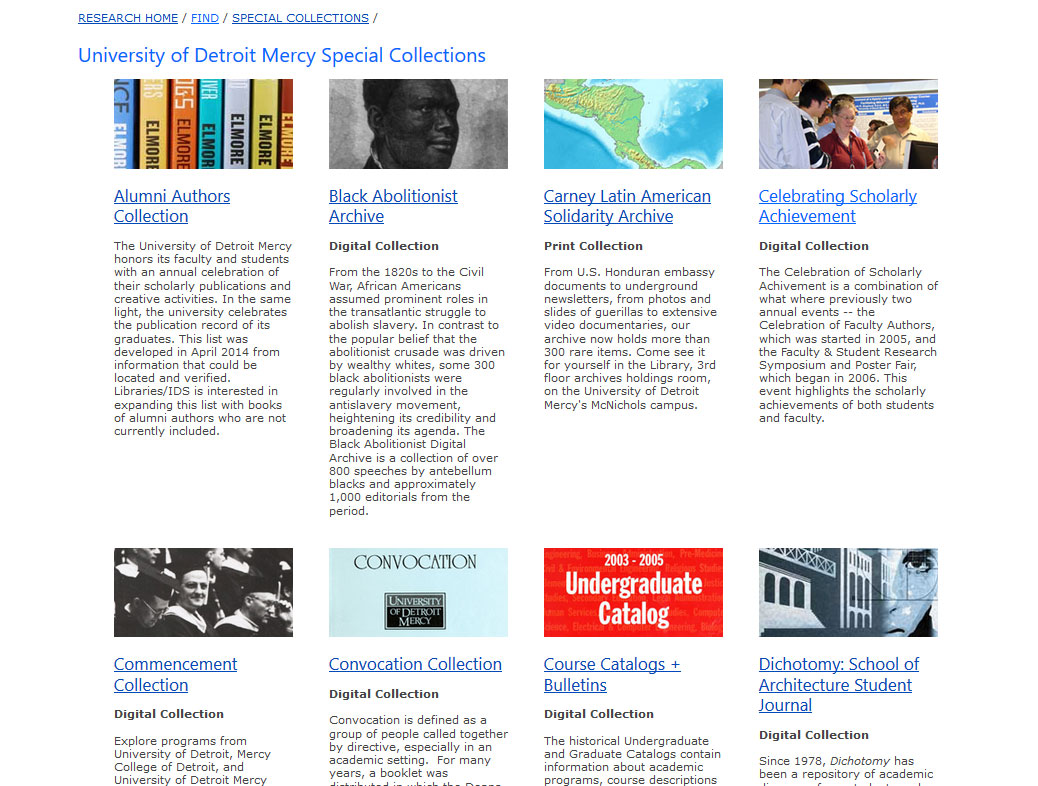Why Archive?
When we think of archives, we tend to think of collections of documents, photographs, or records which have been permanently preserved for historical or research reasons. Out of the millions of pieces of material we human beings create yearly, only certain items are chosen to represent the value of an age or a group or an organization we wish to preserve. Someone must decide whether a grocery list jotted down on a napkin by a famous person will one day offer insight into that famous person’s life or the times in which he or she lived. This is heady stuff and not taken lightly by archivists.
Choosing items for archiving is usually based on creating a unique collection for preservation. This is the art of the process. If you look at the scope of the archived collections at the University of Detroit Mercy, you’ll notice the value placed on preserving history. Communities, organizations, nations, researchers, individuals, and even the university itself gain from a preserved connection with the past. We are able to see trends, follow human advancement, and even check the moral pulse of a growing social structure. Archives tell the story of who we are, they document the contributions and challenges of people who made a difference in the direction of society, and they provide valuable sources of information for research. Archives are our recorded cultural memory and form our official and unofficial history.
Yet historical records, without efforts to preserve them, will quickly disintegrate. Photographs will fade until the once detailed faces are merely shadows; and paper can turn to dust (or both can become consumed by fungus or insects). Without special care, nothing really lasts. Digitizing these items is our way of offering a lasting record, a direct link to them before they are lost to us.
A great society is one that learns from where it’s been and works to create its future by not repeating the mistakes of its past. We are proud to offer this preservation to you in our digital archives, and we hope that you find value in this as much as we do.

